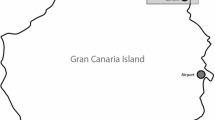Abstract
The present study examines the optimal recycling rate for municipal solid waste. First, an optimal control model is developed to account for the physical costs of recycling, the social costs of landfilling, and consumers' environmental preferences. Second, an optimal solution is simulated using waste disposal data from the Helsinki region in Finland. The benefits from recycling are included in the simulation using the results of a recent contingent valuation study. The results of the present research suggest that mandates for achieving 50% recycling in municipalities are not far-fetched and are both economically and environmentally justified.
Similar content being viewed by others
References
Alexander, J. H. (1993), In Defense of Garbage. Westport, Connecticut: Praeger Publishers.
Amit, R. (1984), 'Petroleum Reservoir Exploitation: Switching fromPrimary to Secondary Recovery', Operations Research 34, 534–549.
Beede, D. and D. Bloom (1995), 'Economics of the Generation and Management of Municipal Solid Waste', National Bureau of Economic Research, Working Paper Series No. 5116.
Brooke, A., D. Kendrick, and A. Meeraus (1988), GAMS: A User's Guide. Redwood City: The Scientific Press.
Bryson, A. E. and Y.-C. Ho (1975), Applied Optimal Control. Optimization Estimation, and Control. Washington D.C.: Hemisphere Publishing Corporation.
Dinan, T. M. (1993), 'Economic Efficiency Effects of Alternative Policies for Reducing Waste Disposal', Journal of Environmental Economics and Management 25, 242–256.
Eiswerth, M. E. (1993), 'Solvent Waste Disposal', Land Economics 69, 168–180.
Goddard, H. (1995), 'The Benefits and Costs of Alternative Solid Waste Management Policies', Resources, Conservation and Recycling 13, 183–213.
Hartwick, J. M., M. C. Kemp, and N. V. Long (1986), 'Set-Up Costs and Theory of Exhaustible Resources', Journal of Environmental Economics and Management 13, 212–224.
Hong, S., R. M. Adams, and H. A. Love (1993), 'An Economic Analysis of Household Recycling of Solid Wastes: The Case of Portland, Oregon', Journal of Environmental Economics and Management 25, 136–146.
Huhtala, A. (1994), Is Environmental Guilt a Driving Force? An Economic Study on Recycling.PhD thesis, University of California, Berkeley, Berkeley.
Jenkins, R. R. (1993), The Economics of Solid Waste Reduction. The Impact of User Feeds. Aldershot: Edward Elgar Publishing Limited.
Lusky, R. (1976), 'A Model of Recycling and Pollution Control', Canadian Journal of Economics 9, 91–101.
Morris, J. (1991), 'Source Separation vs. Centralized Processing: An Avoided-Cost Optimization Model Provides Some Intriguing Answers', Journal of Resource Management and Technology 19, 37–46.
Plourde, C. (1972), 'A Model of Waste Accumulation and Disposal', Canadian Journal of Economics 5, 119–125.
Ready, M. J. and R. C. Ready (1995), 'Optimal Pricing of Depletable, Replaceable Resources: The Case of Landfill Tipping Fees', Journal of Environmental Economics and Management 28, 307–323.
Seierstad, A. and K. Sydsæter (1987), Optimal Control Theory With Economic Applications.Ams-terdam: North-Holland.
Smith, V. L. (1972), 'Dynamics of Waste Accumulation: Disposal Versus Recycling', Quarterly Journal of Economics 86, 600–616.
Suomen kaupunkiliitto (1992), Euroopan yhteisojen kaatopaikkadirektiiviehdotuksen vaikutus kaatopaikkak¨ asittelyn kustannuksiin Suomessa (Impacts of 'A proposal for a European Council Directive on the landfill of waste' on landfilling costs in Finland), Technical report. The Associ-ation of Finnish Local Authorities, Helsinki.
Tomiyama, K. (1985), 'Two-Stage Optimal Control Problems and Optimality Conditions', Journal of Economic Dynamics and Control 9, 317–337.
Tomiyama, K. and R. J. Rossana (1989), 'Two-Stage Optimal Control Problems With an Explicit Switch Point Dependence',Journal of Economic Dynamics and Control 13, 319–337.
Wirl, F. (1992), 'On the Marginal Costs of Garbage Disposal-a Viewpoint', International Journal of Environmental Studies 40, 165–170.
YTV (1993), YTV-alueen jatehuoltopoliittinen suunnitelma1993 (A waste management plan for the Helsinki region 1993), Technical report. Helsinki Metropolitan Area Council.
Author information
Authors and Affiliations
Rights and permissions
About this article
Cite this article
Huhtala, A. A Post-Consumer Waste Management Model for Determining Optimal Levels of Recycling and Landfilling. Environmental and Resource Economics 10, 301–314 (1997). https://doi.org/10.1023/A:1026475208718
Issue Date:
DOI: https://doi.org/10.1023/A:1026475208718




